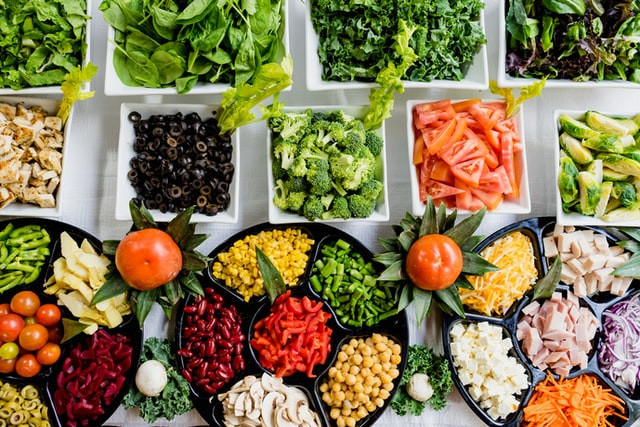Saat hamil, ibu bukan hanya perlu memerhatikan asupan nutrisi yang dikonsumsinya namun juga nutrisi si kecil yang ada di kandungan. Tak jarang porsi makan ibu selama hamil juga meningkat. Namun, benarkah ibu hamil perlu meningkatkan porsi makan demi perkembangan janin yang sehat?
Kebutuhan kalori selama hamil
Kebutuhan kalori ibu hamil mengalami peningkatan dibanding ketika sebelum hamil. Kebutuhan kalori ibu hamil pun berbeda-beda pada setiap trimester kehamilan. Dilansir dari laman What to Expect, saat trimester pertama ibu hamil umumnya belum membutuhkan tambahan kalori yang signifikan.
Ketika memasuki trimester kedua, kebutuhan kalori bumil meningkat sekitar 300-350 kalori per hari atau setara dengan dua gelas susu dan semangkok oatmeal. Sedangkan ketika memasuki trimester ketiga, kebtuhan kalori tambahan semakin meningkat hingga 450-500 kalori per hari. Apabila hamil anak kembar, kebutuhan kalori bisa ditambahkan hingga 300 kalori per bayi. Perlu diketahui bahwa kebutuhan kalori tersebut bervariasi terutama jika ibu hamil memiliki berat badan di bawah ideal ataupun kelebihan berat badan.
Bahaya makan terlalu banyak saat hamil
Meskipun kebutuhan kalori selama hamil meningkat, namun hal ini bukan berarti ibu hamil perlu menambah porsi makan hingga dua kali lipat. Selama 9 bulan kehamilan, kenaikan berat badan yang disarankan adalah 11,5-12 kg. Jika ibu makan terlalu banyak, akan berisiko meningkatkan berat badan yang menyebabkan kegemukan dan berisiko pada proses persalinan.
Selain itu, ketika bumil makan terlalu banyak dapat menyebabkan perut kembung dan memicu heartburn terutama jika ibu mengonsumsi makanan berminyak dan berlemak. Dalam jangka panjang, porsi makan yang berlebihan selama hamil meningkatkan risiko sakit punggung, diabetes saat kehamilan, hingga tekanan darah tinggi.
Tips makan sehat selama hamil
Untuk mencukupi kebutuhan nutrisi selama hamil, ibu tak perlu makan hingga dua kali lipat namun cukup mengonsumsi menu makan sehat dan lengkap selama kehamilan agar tercukupi kebutuhan gizinya. Dilansir dari NHS, berikut ini beberapa makanan sehat yang dibutuhkan ibu hamil.
1. Buah dan sayuran
Buah dan sayuran menyediakan vitamin dan mineral yang dibutuhkan oleh tubuh selama kehamilan. Ibu hamil disarankan mengonsumsi 5 porsi buah dan sayur setiap hari termasuk buah segar, jus, atau buah kering.
2. Karbohidrat
Karbohidrat adalah sumber energi, vitamin dan serat yang dapat membantu Anda untuk merasa lebih kenyang tanpa perlu mengonsumsi terlalu banyak kalori. Sumber karbohidrat yang baik dikonsumsi antara lain roti, kentang, sereal, nasi, pasta, dan mi.
3. Protein
Ibu hamil membutuhkan protein tinggi setiap harinya. Baik protein nabati maupun hewani sama-sama penting untuk dikonsumsi ibu hamil. Sumber protein yang bisa dikonsumsi antara lain kacang-kacangan, ikan, telur, daging.
4. Olahan susu
Produk olahan susu kaya akan kalsium dan nutrisi lainnya yang dibutuhkan tubuh. Untuk susu, ibu bisa mengonsumsi susu skim, susu kalsium tinggi, dan susu nabati seperti susu kedelai. Produk olahan susu yang direkomendasikan antara lain yoghurt atau keju. Hal ini penting karena cadangan kalsium ibu menurun saat hamil sehingga konsumsi kalsium tinggi dapat mencegah ibu mengalami kekurangan kalsium.
5. Lemak
Meskipun lemak identik dengan kandungan makanan yang tidak sehat, ibu hamil memerlukan lemak sehat untuk mencukupi nutrisi bayi yang dikandungnya. Pertumbuhan janin dapat berlangsung dengan baik jika ibu memiliki cukup lemak. Sumber lemak baik antara lain alpukat, ikan laut seperti salmon, telur, dan produk susu lainnya. Daging merah juga baik dikonsumsi karena selain mengandung lemak, daging merah juga tinggi zat besi sehingga mencegah ibu hamil mengalami anemia.
Selama kehamilan, kebutuhan kalori meningkat sehingga wajar jika ibu hamil makan lebih banyak. Namun, yang perlu diperhatikan sebenarnya bukanlah porsi makan yang dikonsumsi melainkan apakah yang dikonsumsi sudah mencukupi kebutuhan nutrisi selama kehamilan. Dengan mencukupi gizi yang dibutuhkan, diharapkan persalinan akan lebih lancar serta ibu dan bayi sehat.
Writer: Ratih
Edited by: dr. Benita Arini Kurniadi
Last updated" 19/07/2021
- dr. Benita Kurniadi












